











Cannabis, or marijuana, testing refers to the qualitative and quantitative analysis of flower, extracts and manufactured products intended for consumption. Analysis is done using various chromatographic techniques. Chromatography refers to the separation of individual components from complex mixtures, or compounds, based on differential characteristics of the components. Specific techniques vary based on which components are being analyzed for.
Cannabis potency and safety testing must be performed by a licensed, accredited laboratory to evaluate for active ingredients (primarily cannabinoids and terpenes) in a medicinal sample, and to rule out possible contaminating substances that may have been inadvertently introduced during cultivation, manufacturing, or storage of product.
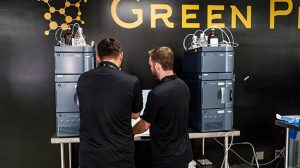
Knowing the levels of individual cannabinoids and terpenes present in a product can help predict the effects of ingested, inhaled or topically applied product. Cannabinoid and terpene profiles vary based not only on the genetics of a specific strain, but also on the environment under which the plants are cultivated and the stage of maturity at which the plants are harvested. Levels also vary based on the rate and degree to which plants are cured, so considerable variability exists even within a specific genetic strain. Using Waters Acquity UPLC platform, GPA offers a 10-Cannabinoid profile for any product.
Potential contaminants such as pesticides, heavy metals, residual solvents, microbial pathogens and mycotoxins can also be incorporated into plant material during cultivation, manufacturing or storage, and must be analyzed for so that products may be certified safe for medical use.
GPA Labs is licensed to test medical cannabis products that originate in Missouri. We can also test Hemp and CBD products from anywhere in the US. State-mandated test requirements vary slightly based on the type of product being certified, but generally require a panel of safety and potency testing, and are required to confirm accuracy of product labeling.
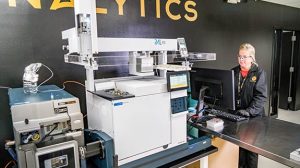
Terpenes are volatile aromatic compounds that give different cannabis strains their characteristic and recognizable aromas, like pine, hops, berry, diesel, and citrus. Additionally, terpenes have biologic activity and can bind to, activate, and modify endocannabinoid receptors, acting together with cannabinoids to modulate their activity through what is known as the “entourage effect”. Geneticists, breeders, and cultivators often select for different and specific terpene profiles in order to achieve the desired effect of a flower or manufactured product. Terpene profile and activity are likewise integral to achieving the desired effect from CBD products derived from hemp.
Due to their volatile nature, GPA utilizes a liquid injection technique using Waters GC/MS/MS technique to accurately identify and quantify the terpenes present in flower, extract, and manufactured products from cannabis and hemp. GPA tests for the full 23-terpene panel.
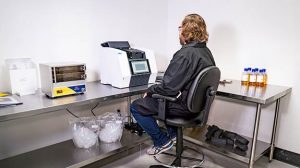
Cannabis flower, concentrate, and infused or manuactured products for sale in Missouri must be tested for microbiological contaminants including mycotoxins (aflatoxins and ochratoxin A), pathogenic E. coli and Salmonella, Aspergillis species A. fumigatus, A. niger, and A. terreus. GPA uses Medicinal Genomics qPCR technology and the Agilent AriaMx real-time thermal cycler for detection of microbiologic contaminants. GPA then goes one step further, and any positive PCR tests reflex to culture using selective media.
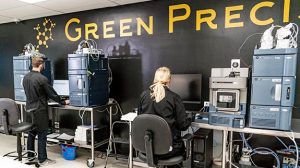
Products also must be tested to ensure that levels of 66 specific chemical analytes do not exceed allowable limits. GPA utilizes Waters LC/MS/MS for pesticide screening of cannabis products.
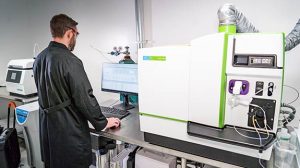
Cannabis products in Missouri will be tested for the presence of heavy metals including arsenic, cadmium, chromium, lead, and mercury. GPA utilizes state of the art technology with PerkinElmer’s ICPMS (Inductively Coupled Plasma Mass Spectroscopy) 1000 system for heavy metals contamination testing.
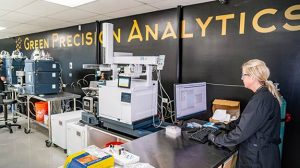
Cannabis products for inhalation and Medical marijuana-infused products are required to be tested to ensure that allowable levels of 20 different residual solvents are not exceeded. GPA employs Agilent Gas Chromatography coupled with Waters Mass Spectroscopy for Residual Solvent analysis.
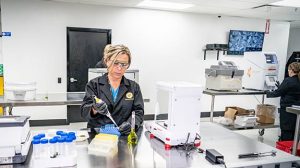
Dried unprocessed marijuana must be assessed to ensure that water activity does not exceed 0.65 aw and moisture content is between 5% and 13%. A Sartorious Moisture Balance is used to evaluate moisture and water content.
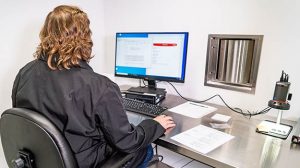
Products must be certified that they contain no more than 5.0% (by weight) of stems 3 mm or more in diameter, and no more than 2.0% (by weight) of other foreign matter including mites, hair, dirt, etc. GPA uses a Cyclops 2.0 Digital microscope with a zoom of up to 140x, allowing us to accurately inspect and photograph your products.
Meet the Team
the experience you need for the best results
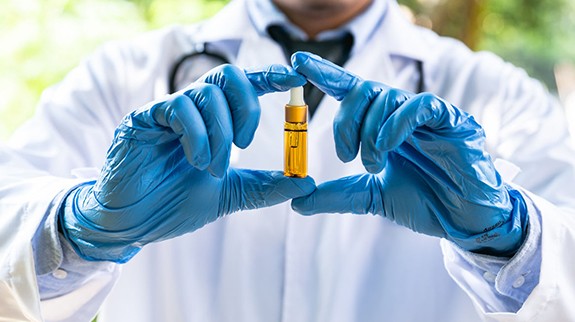
Another Optional
Side-by-Side Container
SIDE-BY-SIDE CONTAINER SUBTITLE
Lorem ipsum dolor sit amet, consectetur adipiscing elit, sed do eiusmod tempor incididunt ut labore et dolore magna aliqua. Ut enim ad minim veniam, quis nostrud exercitation ullamco laboris nisi ut aliquip ex ea commodo consequat.
Take a Look Inside Our
State-of-the Art Testing Facility
Check out the 360 Virtual Tour
We've simplied the cannabis testing process and made it easy & stress-free.
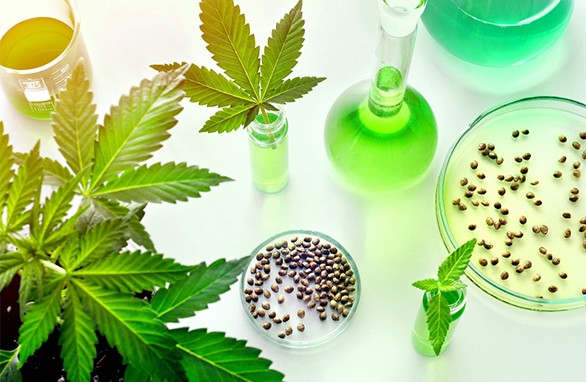
1
Contact us now
Call us now or submit our online form. We will reply ASAP to schedule customized testing for your needs.
2
Complete testing
We will arrange for professional & secure sample pickup and complete all testing that meets or exceeds standards.
3
Get your test results!
You’ll have peace of mind knowing your cannabis product has been tested by professionals.
